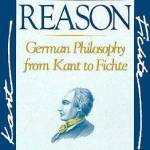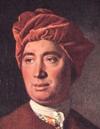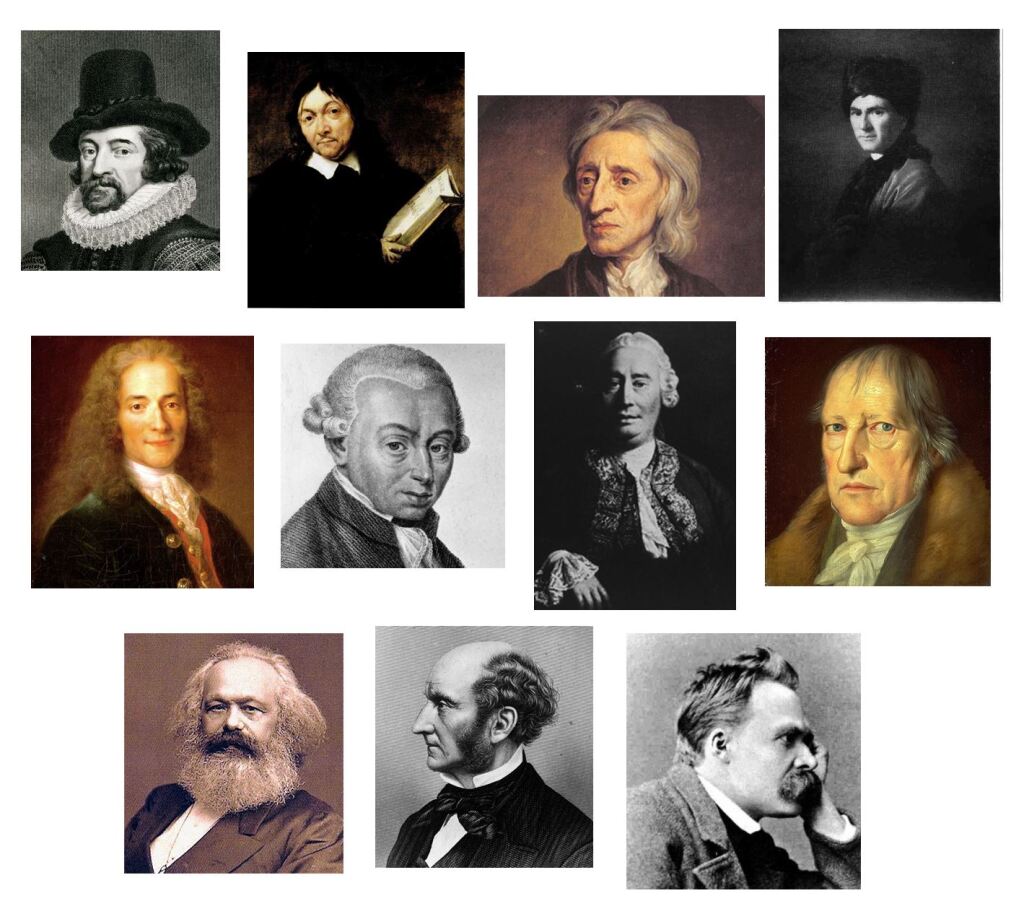A key exchange between 3:AM Magazine and scholar Frederick Beiser, author of The Fate of Reason: German Philosophy from Kant to Fichte:

3:AM: But this is the question that German philosophers in the last decades of the eighteenth century started asking: as you put it, they asked, ‘what is the authority of reason?’ They were looking critically at ‘the fundamental article of faith for the European Enlightenment.’ Why did this happen? Was it that philosophers started to see that Kant and Spinoza in particular were potentially corrosive? Hume played a huge role in this didn’t he? You label the early history of Kantian criticism ‘Hume’s revenge.’

FB: The authority of reason became problematic for essentially two reasons. First, there was the revival of Spinoza’s naturalism. Spinoza’s naturalism was taken to be the paradigm of rational thinking, because it radicalized the methods of the new mechanical sciences. But those methods seemed to lead to atheism and fatalism. That raised a question about the authority of reason: should we follow our reason to the end if it destroys our moral and religious faith? Second, there was almost simultaneously the revival of Hume’s skepticism (through Hamann, Jacobi and Maimon). If we follow Hume’s skepticism to the bitter end, we are left with nothing, because it seems we can know only our passing impressions. We have no reason to believe in the existence of our own selves, other minds and the external world, let alone god. The revival of Hume posed the problem of the authority of reason in a very dramatic way. It raised the spectre of nihilism. When Jacobi introduced this word (Nihilismus) it referred to a Humean form of skepticism: that reason leads to nihilism because it does not allow us to believe in the existence of anything but our passing impressions.

Kant seemed for a brief while to give some relief from Hume’s skepticism. After all, there was the transcendental deduction, which seemed to show that the possibility of experience requires synthetic a priori principles. Maimon quickly put an end to this respite: he pointed out that the deduction begs the question against Hume, who would have doubted the existence of experience in the strong sense required by Kant (i.e., the conformity of representations with universal and necessary laws). There was no Prussian bastion to stop the Scotsman’s swift conquest of the territory once claimed by reason. I think that these Spinozian and Humean problems are still very much with us. Here is another reason for going back to 1781 to 1793: it poses these issues in such a clear and forceful way it is impossible not to think about them.
[Source: Richard Marshall, “Diotima’s Child,” 3:AM Magazine, September 21st, 2012.]
From that skeptical turn to our current postmodernists is the subject of my Explaining Postmodernism: Skepticism and Socialism from Rousseau to Foucault.
Related: My lecture. COUNTER-ENLIGHTENMENT: DAVID HUME and JEAN-JACQUES ROUSSEAU. Lecture 5 of the Modern Philosophy course at Peterson Academy. Information about the lecture and course here.

“Spinoza’s naturalism was taken to be the paradigm of rational thinking, because it radicalized the methods of the new mechanical sciences. But those methods seemed to lead to atheism and fatalism.”
“That raised a question about the authority of reason: should we follow our reason to the end if it destroys our moral and religious faith? ”
Scientifically, rationally, studying the work of God does not lead to atheism, nihilism, or fatalism. Or to a rejection of the Bible. The Jewish Torah from an anthropological, sociological and psychological point of view tells truths about the human being. Those who wrote the words of wisdom in this book rigorously observed humanity, human behavior. So somewhere there is scientific work in this very complex book. I believe that there are psychological dispositions that can lead to nihilism. As for not believing in God, it does not change the fact that he exists, really, materially in the cosmos, or as an idea. Atheism is not in itself nihilism. Nihilism would be to say: “God does not exist”. And not: “I do not believe in God”. It is not the same. While it exists, even as an idea, concept, idea having an impact on brain matter, therefore on life. Something does not need to be material to exist.
Best!
erratum: something does not need to be materialized, matter, outside the brain, the body, to exist. Unicorns exist; dragons exist.
Sorry